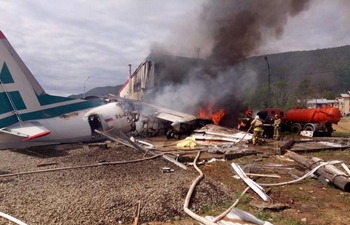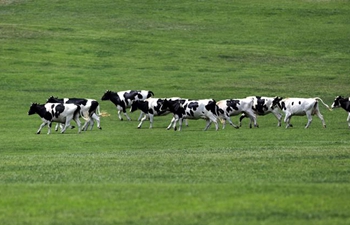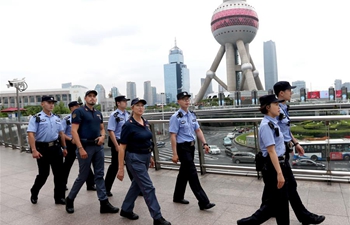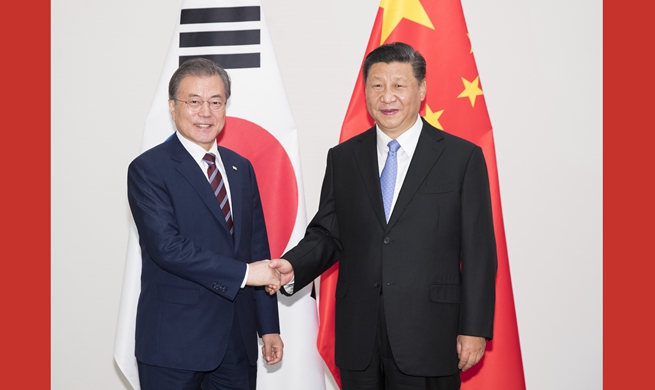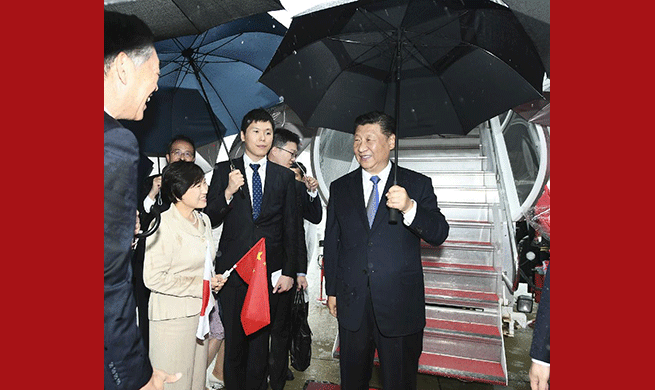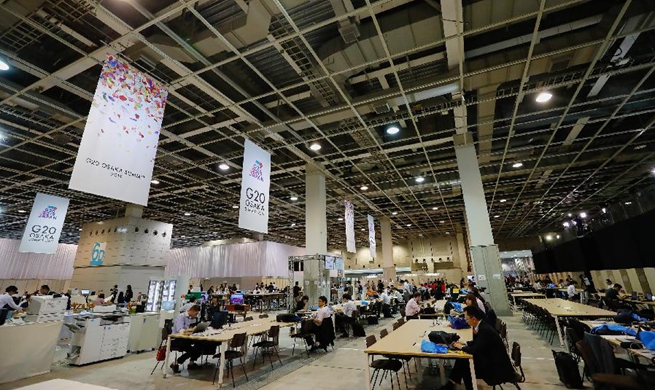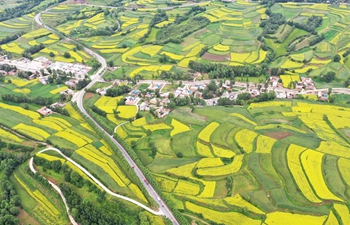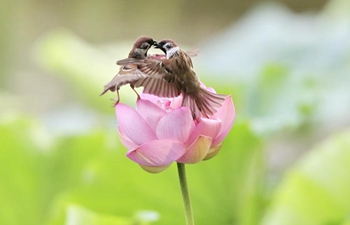GABORONE, June 27 (Xinhua) -- A senior government official in Botswana on Thursday described the new malaria vaccine, RTS,S/AS01, as a boost to Botswana's aspiration to eliminate the mosquito-borne infectious disease by 2020.
Moses Keetile, an acting permanent secretary in Botswana's ministry of health and wellness, made this observation on the sidelines of a one-day Malaria Elimination workshop in Francistown, Botswana's second largest city.
"The role out of RTS,S/AS01 opens a new window of opportunity for the elimination of the already declining cases of malaria in our country," said Keetile, after having achieved a 99.4 percent decrease in reported malaria cases between 2000 and 2018.
In 2000, the southern African country reported 71,555 malaria cases and registered a total of 232 incidences of local transmission in 2018.
According to Keetile, introduction of the new malaria vaccine, which has been in the making for 30 years and has shown partial protection against Plasmodium Falciparum in young children, on the African continent will lead to low importation of the infection in Botswana.
World Health Organization (WHO) puts to test the new malaria vaccine on a large scale in Kenya, Ghana and Malawi with 360,000 children to be vaccinated between 2018 and 2020.
"Botswana sees the introduction of this vaccine as an opportunity that will complement the existing interventions in the control against Malaria," he said.
Malaria transmission is highest in the northern districts of Chobe, Ngami, and Okavango, all of which neighbor the highly endemic Zambezi region and account for more than 85 percent of the country's malaria cases.
Botswana's northern and central districts experience focal transmission and are at high risk for outbreaks after heavy rains, while the southern part of Botswana is considered non-endemic and at low risk for sporadic cases.
